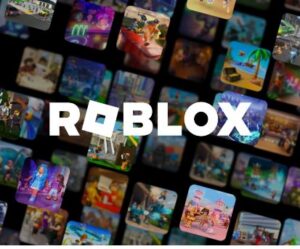 Games
Games
Exploring the Immersive Universe of Roblox
Introduction: Roblox stands as a testament to the innovative fusion of gaming and social interaction, offering a diverse universe where creativity knows no bounds. With millions of users worldwide, this platform has evolved beyond a mere gaming experience into a dynamic ecosystem where players become creators, and imagination flourishes. This essay delves into the captivating world of Roblox, examining its evolution, unique features, community dynamics, and its impact on modern gaming culture.

A Brief History: Founded in 2004 by David Baszucki and Erik Cassel, Roblox began as a modest platform called DynaBlocks. Over the years, it transformed into the immersive virtual universe known today. By 2006, Roblox officially launched, introducing users to its distinctive blend of user-generated content and multiplayer gaming. Since then, its user base has skyrocketed, with millions of active players engaging in a myriad of experiences created by both developers and fellow users.
The Roblox Experience: At its core, Roblox offers a vast array of games, each with its own unique gameplay mechanics and visual styles. From adrenaline-pumping adventures to serene virtual hangouts, there’s something for everyone within its digital realm. What sets Roblox apart is its emphasis on user-generated content. Through Roblox Studio, players can design their own games, items, avatars, and even monetize their creations.
Community Dynamics: Central to Roblox’s success is its vibrant community. Players collaborate, share ideas, and engage in friendly competition within the platform’s social spaces. Roblox fosters creativity and collaboration, empowering users to express themselves through game development. Moreover, the community-driven nature of Roblox ensures a constant influx of fresh content, keeping the platform dynamic and engaging.
Monetization and Economy: Roblox provides developers with various avenues for monetization, including in-game purchases, premium memberships, and virtual currency known as Robux. Developers can earn Robux by selling game passes, virtual items, and developer products, fostering an economy within the platform. This system incentivizes creators to produce high-quality content while allowing players to support their favorite developers.

Impact on Gaming Culture: Roblox’s influence extends beyond its virtual borders, shaping modern gaming culture in profound ways. It democratizes game development, empowering individuals of all ages to create and share their gaming experiences. Furthermore, Roblox serves as a gateway for aspiring developers, providing valuable skills in coding, design, and entrepreneurship. Its social aspects also mirror the growing trend of online communities shaping entertainment and social interaction.
Challenges and Future Prospects: Despite its success, Roblox faces challenges such as moderation issues, ensuring a safe environment for its young user base, and addressing concerns regarding copyright and intellectual property. However, the platform continues to evolve, introducing new features, partnerships, and initiatives to address these challenges. With its growing popularity and innovative spirit, Roblox is poised to remain a dominant force in the gaming industry for years to come.
Conclusion: Roblox transcends the traditional boundaries of gaming, offering a dynamic platform where creativity thrives and communities flourish. Its user-generated content model, coupled with a vibrant community, has revolutionized the way people interact with games. As Roblox continues to evolve and expand its reach, its impact on gaming culture and beyond is undeniable, cementing its status as a pioneering force in the digital landscape.